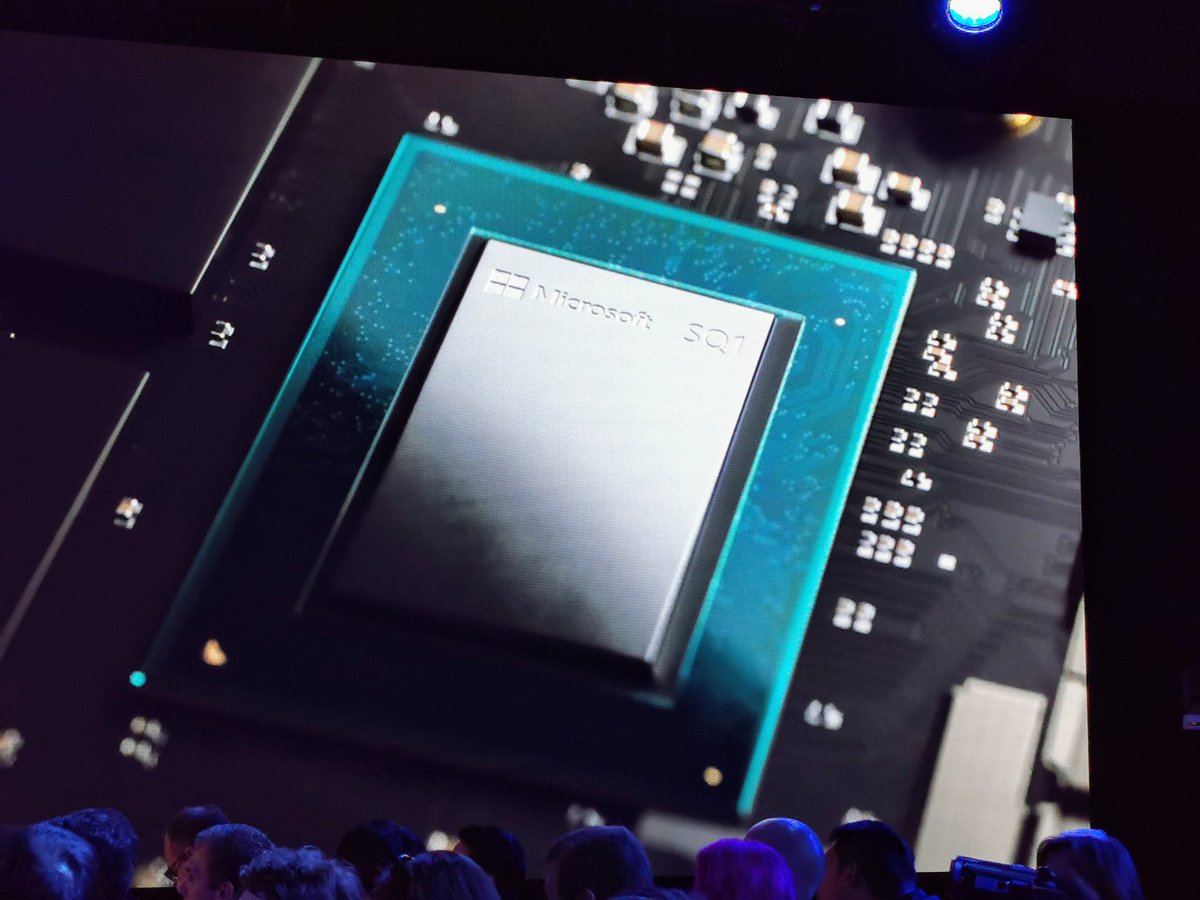Microsoft reportedly creating its own ARM chips for servers and Surface PC
Could Microsoft be making its own processor to rival Apple's M1? Bloomberg says yes.

All the latest news, reviews, and guides for Windows and Xbox diehards.
You are now subscribed
Your newsletter sign-up was successful
What you need to know
- Microsoft is reportedly designing its own processors.
- The chips will be for servers, but also possibly some Surface PCs.
- The chips would be based on ARM.
Update 9 PM ET: Statement from Intel added.
While Microsoft Research has explored various processor architectures for years, none of that tech has borne out for Windows PCs or Azure. That may change, however, according to a breaking report by Bloomberg.
Bloomberg noted that "Microsoft Corp. is working on in-house processor designs for use in server computers that run the company's cloud services … using Arm Ltd. designs to produce a processor that will be used in its data centers."
Interestingly, the article also mentions that Microsoft is "exploring" using another chip in "some of its Surface line of personal computers," which is also presumably also ARM-based, but it is not clear.
Bloomberg has expanded the article to include more information about the project:
Microsoft's efforts are more likely to result in a server chip than one for its Surface devices, though the latter is possible, said one of the people. The company's chip design unit reports to Jason Zander, head of the Azure cloud business, rather than Panos Panay, who oversees Surface products. Representatives of Microsoft and Arm declined to comment on whether Microsoft is working on server and PC processors.
Interestingly, Microsoft is not denying the rumor:
"Because silicon is a foundational building block for technology, we're continuing to invest in our own capabilities in areas like design, manufacturing and tools, while also fostering and strengthening partnerships with a wide range of chip providers," Microsoft spokesman Frank Shaw said.
Intel has since released at statement regarding the rumor:
All the latest news, reviews, and guides for Windows and Xbox diehards.
The incredible demand for computing fueled by new workloads like AI is driving more silicon experimentation in the cloud. Building on decades of x86 ecosystem innovation, we are committed to providing customers the world's best CPUs and new products from GPUs to AI chips. In this expanding market, we expect to gain share in many areas like AI training, 5G networks, graphics and autonomous driving."
Like Intel, AMD, and other companies, Microsoft was likely blindsided by Apple's impressive M1 processor, gaining a lot of traction amongst tech enthusiasts and the media. Apple's ARM-based chip at 5nm is significantly more potent than Qualcomm, Intel, and AMD's latest offering, often rivaling desktop-class processors at a much lower cost. Apple now appears to be years ahead of anyone else in mobile CPUs, and how that affects Windows PCs and servers could be dire if not adequately addressed.
Of course, like every other company, Microsoft is likely exploring contingencies should Intel (and AMD and Qualcomm) not be able to compete.
None of this is too surprising. Surface (and now Windows) head Panos Panay recently told Bloomberg "Where we think we need to invest in silicon, we are absolutely going to. If there's a need, we're going to fill it."
Additionally, Microsoft not long ago announced its Microsoft Pluton security processor and has collaborated with Qualcomm and AMD for customized silicon for Surface Pro X and Surface Laptop, respectively. It also works with AMD for its Xbox processors too.
Exactly how and when such a Microsoft processor may come to fruition remains to be seen, but it is clear Redmond has no plans to sit idly by if Intel and the rest can't offer a solution to Apple's M1.

Daniel Rubino is the Editor-in-Chief of Windows Central. He is also the head reviewer, podcast co-host, and lead analyst. He has been covering Microsoft since 2007, when this site was called WMExperts (and later Windows Phone Central). His interests include Windows, laptops, next-gen computing, and wearable tech. He has reviewed laptops for over 10 years and is particularly fond of Qualcomm processors, new form factors, and thin-and-light PCs. Before all this tech stuff, he worked on a Ph.D. in linguistics studying brain and syntax, performed polysomnographs in NYC, and was a motion-picture operator for 17 years.
